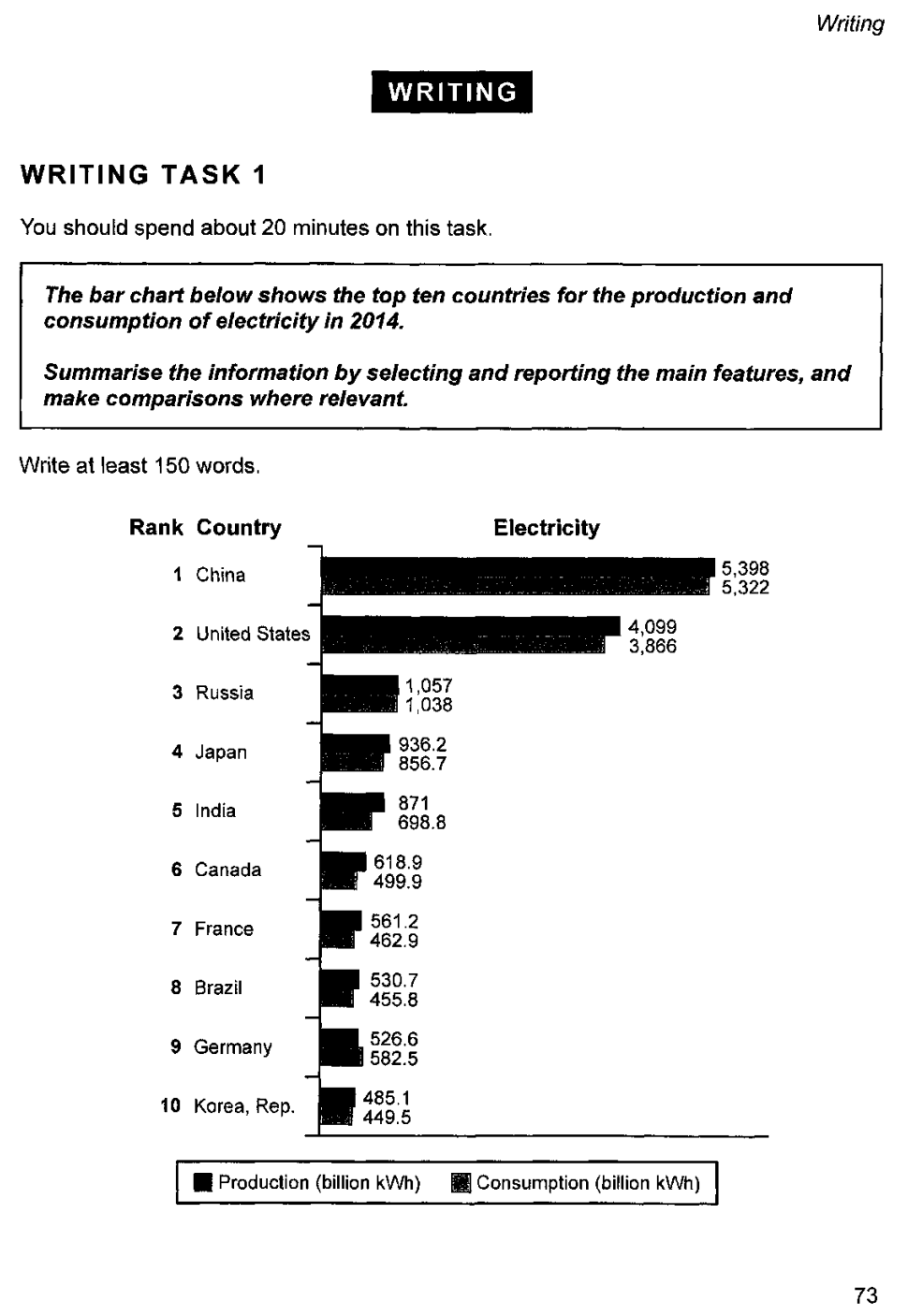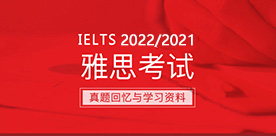雅思考試支招小作文(81)|柱圖變體 條狀圖+國產(chǎn)用電
2022/6/2 17:26:00來源:新航道作者:新航道
摘要:雅思寫作是中國考生們的一大頭疼科目,也是難以提高的科目。新航道 章躍老師分享小作文的柱圖變體 條狀圖+國產(chǎn)用電,希望能對即將要參加考試的烤鴨們有所幫助!
雅思寫作是中國考生們的一大頭疼科目,也是難以提高的科目。新航道 章躍老師分享小作文的柱圖變體 條狀圖+國產(chǎn)用電,希望能對即將要參加考試的烤鴨們有所幫助!
* 條狀圖(柱圖變體,依然是bar chart,因為“bar”指的是條狀物),選自《劍橋雅思真題集13》

閱讀提示:
* 分組(即行文思路):
組一:1和2(都要作為main feature進行描述),
組二:3—5(Russia作為main feature進行描述),
組三:6—10(Korea和Germany作為main feature進行描述)
* 主語的選擇:國家名、production或consumption(詞本身), electricity/electrical power(詞本身)、電量數(shù)值、代詞。
* 狀語的各種形式:動詞分詞(或動賓)(前置、插入、伴隨)、獨立主格結構、介賓短語。
* 修飾名詞:形容詞、前綴、定語從句、同位語。
Shown in the chart are ten sets of bars that illustrate the production and consumption of electricity in ten top countries, and the statistics are from 2014. Overall, the figures were diverse.
First of all, it is evident that China and the United States were the two biggest producers and consumers of electrical energy. What is more, China was a bigger producer and also a bigger consumer, with a greater volume of production of almost 5,400 billion kWh and a greater volume of consumption of roughly 5300 billion kWh, whichcompared favorably with America’s 4100 billion kWh and 3900 billion kWh.
* 避免用主句進行生硬的陳述數(shù)據(jù),而是寫出數(shù)據(jù)體現(xiàn)出來的事實。
* 以狀語、定語從句、同位語等方式陳述數(shù)值。
Russia, Japan, and India, ranking 3rd, 4th and 5th, were far behind the top two in their production and usage. Their figures ranged from approximately 700 billion to just over 1000 billion, and it is notable that Russia was the only country that produced and used over 1000 billion kWh of electricity.
* 用rank為動詞表達排位的時候,序數(shù)詞前沒有“the”。
* 避免生硬的“量多量少”概念組織措辭。
It is also worth noting that Korea Rep. had the smallest figures (490 billion kWh and 450 billion kWh) among the rest five countries – Canada, France, Brazil, Germany and Korea Rep., whose production and consumption were no more than about 620 billion kWh. Germany is also noteworthy, as its production could not cover its consumption.
* 避免生硬的“量多量少”概念組織措辭。
Clearly, some of those countries differ vastly.
* 補充知識點一:表示“國家”的詞,但是意義偏向不同:
country — 通用,泛指各種意義的“國家”。
nation — 人的集合(含有民族性),注意區(qū)別于ethnicity。
society — 強調(diào)“社會性” ,例如:American society are Chinese society are two different societies. We need to be careful when we deal with people from different societies.
culture — 強調(diào)“文化性”。
state — 強調(diào)“政府性”,例如:state-owned businesses(國有企業(yè))。
land — 含有地域性 We can eat foods from foreign lands. China has animals from foreign lands.
soil — 含有領土性。
territory — “領土/領地”。
sovereignty — 強調(diào)“主權”,“主權國家”,例如:Taiwan is not an independent sovereignty.
* 補充知識點二:表達程度的形容詞或副詞(例舉):
“大”:immense、tremendous、enormous、huge、colossal、gigantic、giant、sizeable、major、significant、vast、massive、remarkable、marked、considerable、notable、apparent、conspicuous …
“小”slight、minor、insignificant、minute、negligible、marginal …
“不大不小”:moderate、modest、reasonable …
免費獲取資料
熱報課程
- 雅思課程
| 班級名稱 | 班號 | 開課時間 | 人數(shù) | 學費 | 報名 |
|---|
免責聲明
1、如轉(zhuǎn)載本網(wǎng)原創(chuàng)文章,情表明出處
2、本網(wǎng)轉(zhuǎn)載媒體稿件旨在傳播更多有益信息,并不代表同意該觀點,本網(wǎng)不承擔稿件侵權行為的連帶責任;
3、如本網(wǎng)轉(zhuǎn)載稿、資料分享涉及版權等問題,請作者見稿后速與新航道聯(lián)系(電話:021-64380066),我們會第一時間刪除。
全真模擬測試
雅思動態(tài)

DeepSeekx雅思官方:中國考生...
制作:每每







